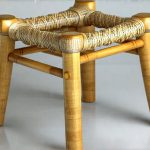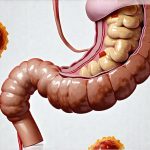Overindulging in rich, fatty foods is a common experience, often associated with celebrations, holidays, or simply giving in to cravings. While momentarily satisfying, these dietary excursions can frequently lead to uncomfortable gastrointestinal consequences, most notably loose bowel movements or diarrhea. This isn’t merely about the unpleasantness of the symptoms themselves; understanding why this happens provides valuable insight into how our digestive system functions and how we can mitigate these effects. The connection between high-fat foods and altered bowel habits is complex, involving a cascade of physiological processes from enzymatic activity to intestinal motility.
The human digestive system is remarkably adaptable but has its limits. When confronted with an unexpectedly large amount of fat – significantly more than it typically handles – it struggles to efficiently process everything. This struggle manifests in various ways, impacting the speed at which food moves through our intestines and how effectively water is absorbed. It’s important to remember that this isn’t usually a sign of serious illness unless accompanied by other concerning symptoms like fever, severe abdominal pain, or blood in the stool. Most often, it’s a temporary disruption caused by dietary excess, but being aware of the underlying mechanisms can help us make informed choices and manage these episodes more effectively.
The Digestive Process & Fat Malabsorption
The digestion of fat is a multi-stage process that begins in the mouth (though minimal) and truly kicks into gear in the small intestine. Here, bile – produced by the liver and stored in the gallbladder – emulsifies fats, breaking them down into smaller droplets. Simultaneously, pancreatic lipase enzymes break down these droplets into fatty acids and glycerol, which can then be absorbed through the intestinal wall. A sudden influx of a large quantity of fat overwhelms this system. The body might not produce enough bile or lipase quickly enough to efficiently process it all, leading to malabsorption. Understanding bloating from certain foods can also help you identify sensitivities.
When fats aren’t properly digested and absorbed, they remain in the intestines for longer periods. This increased presence of undigested fat draws water into the intestinal lumen through osmosis – a natural process where water moves from areas of low solute concentration (the body) to areas of high solute concentration (the undigested fat). This influx of water is a primary reason why overeating fatty foods results in looser stools. Furthermore, the presence of unabsorbed fat can stimulate peristalsis – the wave-like contractions that move food through the digestive tract – accelerating intestinal motility and contributing to diarrhea. Considering how digestive enzymes influence bowel movements might also provide valuable insights.
Finally, certain types of fats are harder for the body to digest than others. Highly processed or fried foods often contain trans fats and saturated fats in large quantities. These require more intensive breakdown processes and can further exacerbate malabsorption issues compared to healthier unsaturated fats found in avocados or olive oil. The gut microbiome – the community of bacteria residing in our intestines – also plays a role, as its composition can influence how efficiently we digest different types of fat.
Identifying Trigger Foods & Portion Control
Pinpointing which high-fat foods are most likely to trigger loose stools is the first step towards prevention. While individual sensitivities vary, some common culprits include: – Fried foods (French fries, fried chicken) – Fatty cuts of meat (bacon, sausage) – Processed snacks (chips, cookies, pastries) – Rich sauces and dressings (mayonnaise-based salads, creamy pasta sauces) – Full-fat dairy products (cheese, ice cream).
Portion control is paramount. Even seemingly harmless foods can cause problems when consumed in excessive amounts. Moderation is key. Instead of eliminating these foods entirely (which isn’t always realistic or desirable), focus on enjoying them in smaller portions and less frequently. Consider using food scales or measuring cups to gain a better understanding of portion sizes. This helps avoid unconsciously overeating, even with enjoyable meals. It’s also worth exploring the impact of high-fat foods on digestive comfort.
Another helpful strategy is mindful eating. Pay attention to your body’s signals of fullness. Eating slowly and savoring each bite allows you to recognize when you’re comfortably satisfied, preventing you from continuing to eat past that point. Avoid distractions during mealtimes (television, phones) so you can focus on the experience of eating and better gauge your satiety levels.
The Role of Bile & Gallbladder Function
As previously mentioned, bile is essential for fat digestion. It’s produced by the liver but stored and concentrated in the gallbladder. The gallbladder then releases bile into the small intestine when fatty foods are detected. If there’s a problem with gallbladder function – such as gallstones or inflammation – it can impair bile production and release, leading to difficulty digesting fats. This isn’t necessarily caused by overeating per se, but overeating high-fat foods can exacerbate pre-existing gallbladder issues.
Symptoms of gallbladder problems can mimic those of fat malabsorption, including bloating, abdominal pain, nausea, and diarrhea. If you suspect a gallbladder issue, it’s essential to consult with a healthcare professional for proper diagnosis and treatment. However, for most people experiencing loose stools after overeating fatty foods, the problem isn’t related to chronic gallbladder dysfunction but rather a temporary overload of the digestive system.
Hydration & Dietary Adjustments
Staying well-hydrated is crucial when dealing with diarrhea caused by fat malabsorption. Diarrhea leads to fluid loss, which can contribute to dehydration and worsen symptoms. Drink plenty of water, clear broths, or electrolyte solutions to replenish lost fluids. Avoid sugary drinks, as they can sometimes exacerbate diarrhea. Electrolytes are particularly important because they’re also lost during diarrheal episodes.
Following the overindulgence, consider making temporary dietary adjustments for a few days to allow your digestive system to recover. This might involve: – Reducing fat intake significantly – Choosing lean protein sources and complex carbohydrates – Increasing fiber intake gradually (soluble fiber like oats can help absorb excess water) – Avoiding dairy products if you suspect lactose intolerance is contributing to the issue. – Incorporating probiotics, which may help restore a healthy gut microbiome. Recognizing signs of pancreatic stress from overeating can also help understand the limits of your digestive system.
These adjustments are not about punishment or restrictive dieting; they’re about giving your body the support it needs to rebalance and regain normal function. Remember that symptoms usually resolve within 24-72 hours with proper hydration and dietary management. If symptoms persist or worsen, seeking medical advice is always recommended. Perhaps understanding exploring hidden reasons for urgent bowel movements can help you prepare for any future issues. Finally, consider if the effects of high-fat diets on bowel movements are impacting your experience.


















